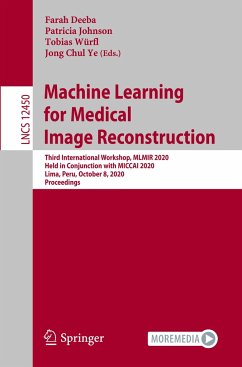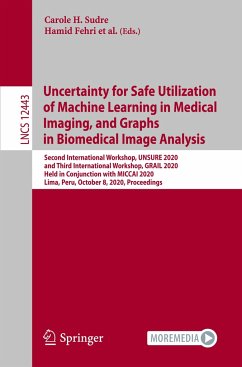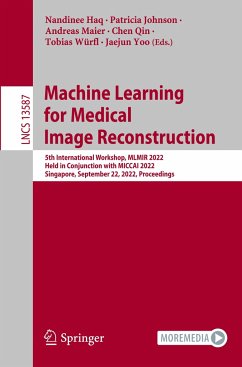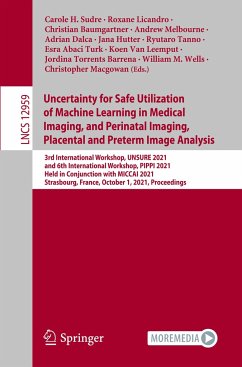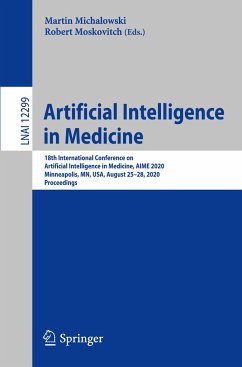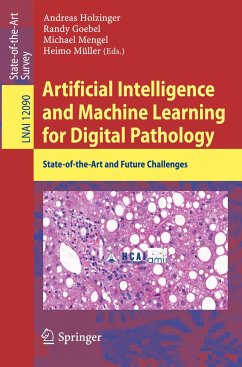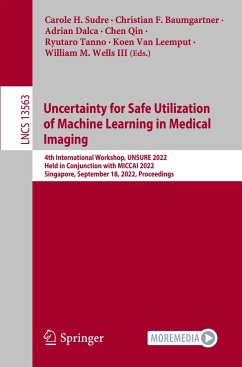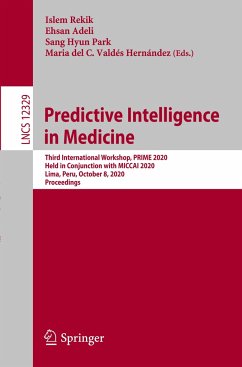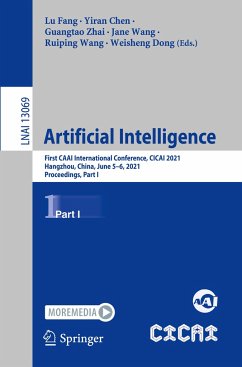
Machine Learning for Medical Image Reconstruction
Second International Workshop, MLMIR 2019, Held in Conjunction with MICCAI 2019, Shenzhen, China, October 17, 2019, Proceedings
Herausgegeben: Knoll, Florian; Maier, Andreas; Rueckert, Daniel; Ye, Jong Chul

PAYBACK Punkte
19 °P sammeln!
This book constitutes the refereed proceedings of the Second International Workshop on Machine Learning for Medical Reconstruction, MLMIR 2019, held in conjunction with MICCAI 2019, in Shenzhen, China, in October 2019.
The 24 full papers presented were carefully reviewed and selected from 32 submissions. The papers are organized in the following topical sections: deep learning for magnetic resonance imaging; deep learning for computed tomography; and deep learning for general image reconstruction.
The 24 full papers presented were carefully reviewed and selected from 32 submissions. The papers are organized in the following topical sections: deep learning for magnetic resonance imaging; deep learning for computed tomography; and deep learning for general image reconstruction.



